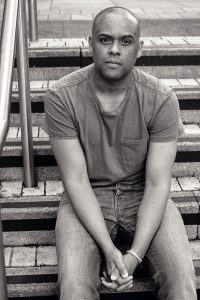 I was speaking with my American friend recently when she said I should take more of an active role in fighting discrimination, especially around the Black Lives Matter movement. She believes as well as my writing and advocacy for change within policing to make it better, I should be out there on the streets protesting along with others who want justice and equality.
I was speaking with my American friend recently when she said I should take more of an active role in fighting discrimination, especially around the Black Lives Matter movement. She believes as well as my writing and advocacy for change within policing to make it better, I should be out there on the streets protesting along with others who want justice and equality.
This got me thinking.
The truth is, I’ve never been on a protest in my entire life for fear of being labelled wrongly. The only demonstration I have been on, ironically, was a police one. This was some years ago, when British police for the first time marched through London against the UK Government about pay and conditions.
Over the years, I’ve written and spoken extensively about policing, and the parts of it that I believe are not cohesive to society. Today, I wrote my first article for The Guardian about homophobia within the force. On the inside, my voice was not allowed to be heard. In fact, it was silenced and undermined.
I now have a voice, in which I am the controller of it.
When I first challenged police discrimination and wrongdoing, I was mindful of how others would perceive me and how I wanted to be perceived myself. I was learning the craft of writing, whilst trying to understand litigating against the UK’s biggest police force. When I was no longer an officer and people would ask me to describe myself, I would say I was a writer and ambassador – for justice and equality. I was writing, but I strived to keep away from the word ‘activist’. I didn’t want to be stereotypically and negatively labelled this way, like I had seen against many others.
As time went on, I found myself advocating for social justice and equality with my writing. The word ambassador felt more like I was approving injustices and inequality, as oppose to advocating for change. When I last spoke with my American friend, we were talking about some of the projects I was working on, when the word ‘activist’ popped up. She told me clearly, whether you label yourself that way, I am by the very nature of what I do, an activist.
At first I felt uncomfortable, because of what I had associated with it. For eleven years after leaving university, I was conditioned into the institution of policing which was the natural challenger to activists and activism. So much so, that when there were demonstrations in the UK against the war in Iraq, I was on one side of the line, whilst my friends from university were on the other. They were demonstrating against Britain’s involvement in the war, and I was protecting to all extents the status quo.
As I sit here today with Mandela: Long Walk to Freedom strangely on in the background, I realise that once you have been institutionalised, it’s takes real determination to rid yourself of that institution. Being in the police can be compared to being in prison. Police think in a particular and systematic way, there’s no room for individualism and creativity. I’ve spoke to and read many accounts of those who have been inside, and how they find it hard to be on the outside. Some offend just to be imprisoned into a system they have become accustomed to.
As I continue to work on my book about my time in the police, I am reflecting about my past and future in ways I’ve never done before. The man I was, the man I now am, and the man I want to be.
I haven’t taken part in active activism because I have been afraid that others will judge me. I am already judged though. I’m not here for the popularity contest, I’m here to offer my take, my voice, and what I see good and bad about the world today. Maybe it is time I got out there in the streets with others, shouting loudly about the issues that matter to me.